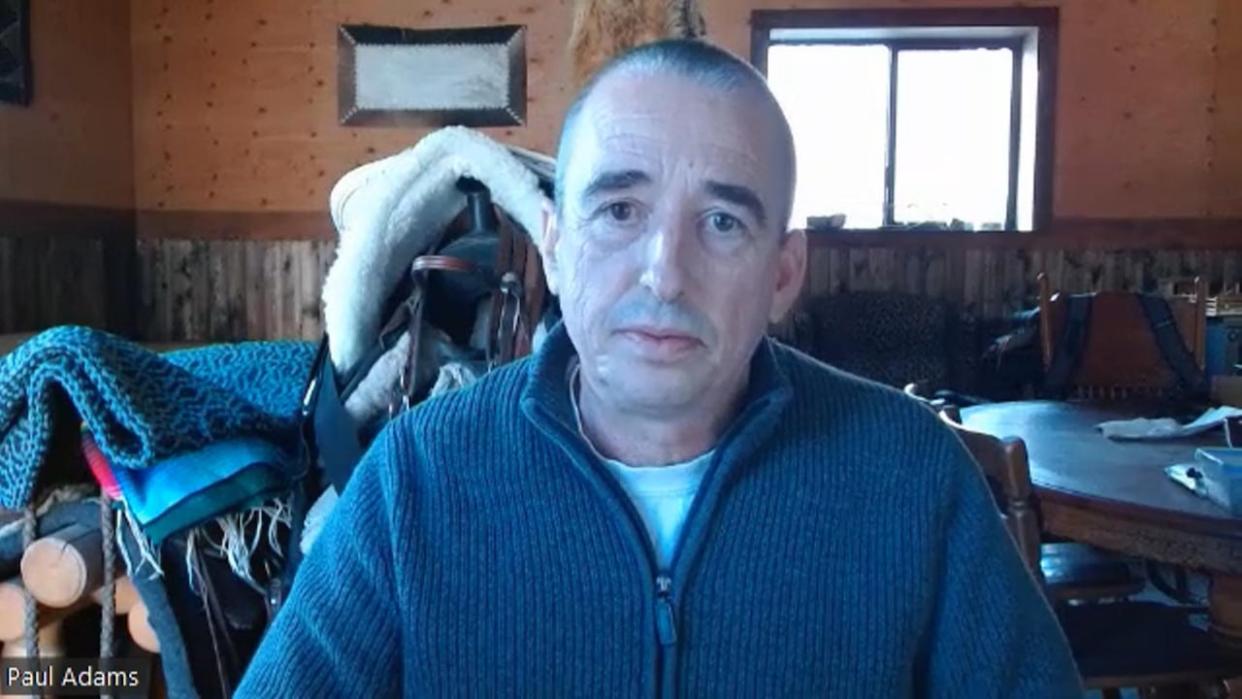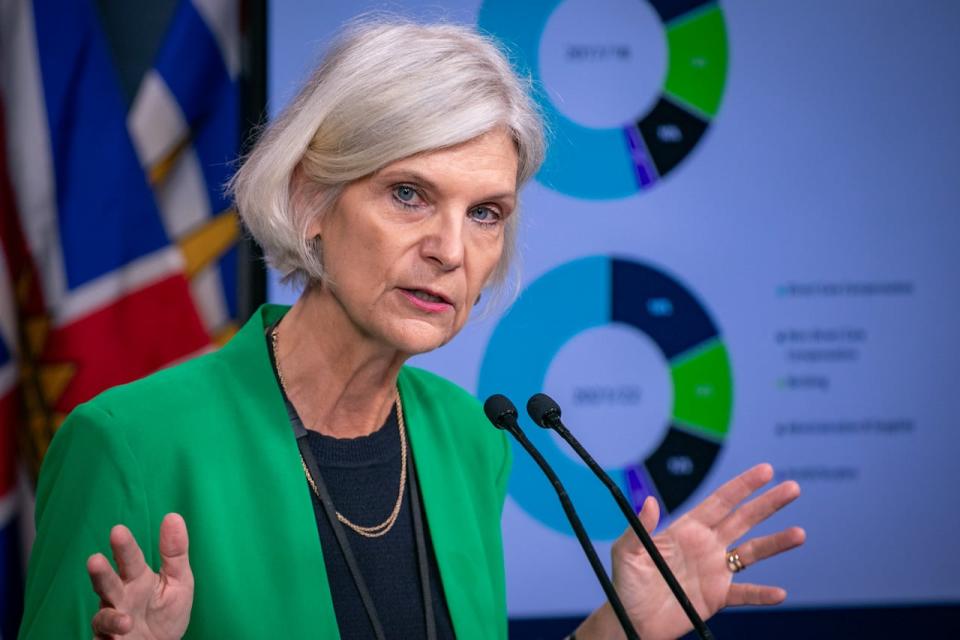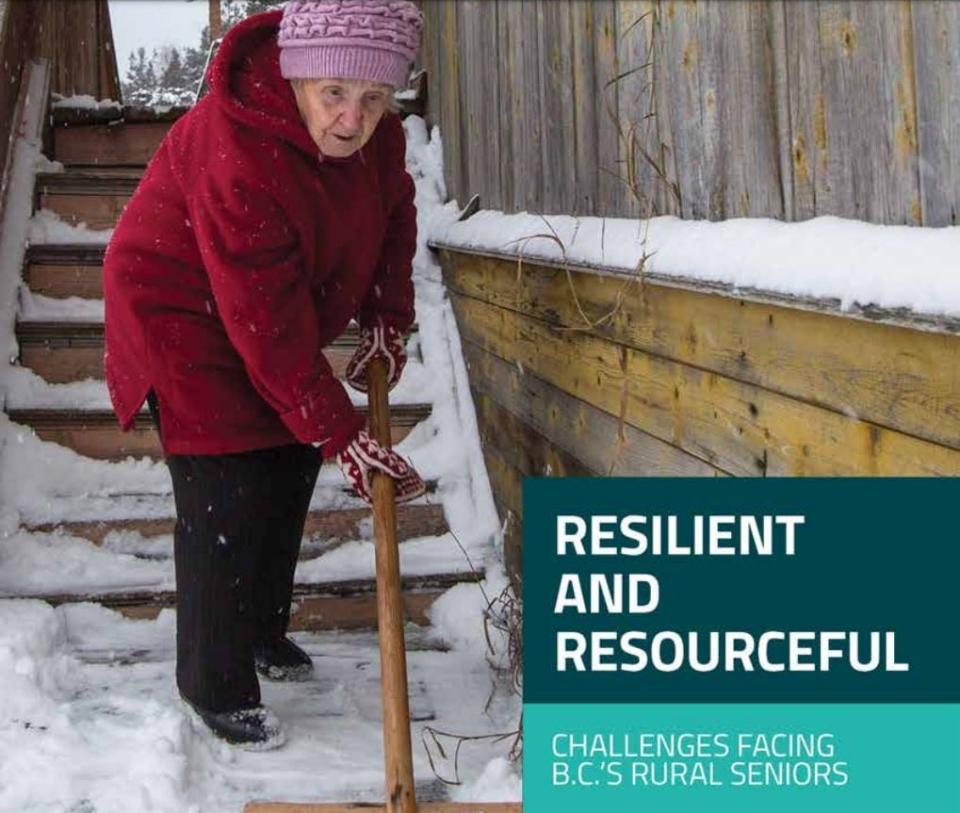Rural seniors in B.C. face worsening service gap, watchdog warns

Paul Adams spends a lot of time thinking about what it will mean to grow older in his rural B.C. community.
At 55, he knows a lot of people his age and older are looking with some anxiety at their future outside of the province's cities, in the small towns they love.
"Where I live is my home," he said from his rustic house, where several pelts hang from a wall and firewood is neatly stacked by his chair.
"I want to stay in my home as long as possible."
Adams lives in Princeton, B.C., a community of fewer than 3,000 people nearly 90 kilometres southwest of Kelowna.
It's one of many small towns in the province facing a rapidly aging demographic — aging far faster, in fact, than cities, according to a new report.
'I don't think it'll be a surprise to rural British Columbians'
On Thursday, B.C.'s seniors advocate, Isobel Mackenzie, released her latest report, Resourceful and Resilient: Challenges Facing B.C.'s Rural Seniors.
She found that a quarter of the province's rural population is now over 65, six per cent more than in cities. Within the next eight years, the age gap will grow even faster, with seniors predicted to make up 29 per cent of small towns.

B.C.'s seniors advocate, Isobel Mackenzie, wants the province to develop strategies to address the widening gap in services for rural seniors. (Mike McArthur/CBC)
"I think some people will be surprised to learn that rural B.C. actually has the fastest growing senior population," Mackenzie told CBC's Radio West. "And so more demand proportionately in the population and yet fewer resources and supports.
"I don't think it'll be a surprise to rural British Columbians that right across the board the sort of availability and accessibility of these services is less in rural B.C."
Among the data she included in her report, Mackenzie found that four per cent more rural seniors can't find a family doctor or nurse practitioner than urban seniors, many at a time in their lives when they may need consistent primary care the most.
And in small towns, she said, there are 24 per cent fewer home supports available for seniors compared to cities, and just over half the number of long-term care beds per capita, with double the wait times.
"Rural seniors really are lacking in the supports and services they need relative to their urban counterparts," she told CBC.
'We need to keep our seniors and our elders in place'
Mackenzie's findings came as no surprise to Adams, who is executive director of the B.C. Rural Health Network, which represents rural people of all ages across the province, but for which a significant focus is on struggling seniors.
"The migration of population to rural B.C. is causing additional pressure," he said. "We're an aging population and this is our home.
"We need to keep our seniors and our elders in place for many reasons, but part of it is just the social fabric, and being able to provide care to generations younger than us."
He said that as long as the gap in services and supports continues to widen, "the less viable it is to age in the community that you grew up in, that you've raised your family in."
His group has many retired members on its board of directors, Adams said, and many of them share similar concerns about a crisis he said is only set to worsen without better government planning.
Mackenzie's report calls on the province to create specific strategies to address service gaps, calling on B.C. to create specific plans on issues of seniors' health, home care, transport, and housing.

The report released Thursday by B.C.'s seniors advocate, titled 'Resilient and Resourceful,' examines gaps in services in rural areas as their populations age faster than cities. (Submitted by Office of the B.C. Seniors Advocate)
$1 billion spent on seniors care, assisted living, says B.C.
The province's Health Ministry says it's spent $1 billion over the last four years on seniors care, including home health, long-term care, and assisted living.
"The issues the report raises drive our work," said a spokesperson in an email, "to ensure that seniors across the province, including those in rural communities, have access to the care and supports they need to age well and comfortably."
The province already has a transport program to help seniors access health care, but Mackenzie said it isn't widely enough promoted or known.
Marie-Noël Campbell, executive director of Seniors First B.C., says the report is a welcome call to action on issues the provincially-funded non-profit has long advocated for.
"It's a large province, right? So there's no easy fix," said Campbell, in a phone interview with CBC News.
"We know that it is difficult for seniors in rural areas to access those services — legal services and health-care services — and these will go hand in hand.
"It's harder for them. We hear from people who are trying to locate services near them and that's part of what we do … It's a question of accessibility. And of course, it's frightening."
Adams feels what is needed is a larger set of long-term strategies. As the age gap widens even more in the next decade, he said, seniors risk falling even further behind.
"It shouldn't come as a shock to us in 10 years time," he said. "We need to start putting the plans in place in order to accommodate our aging population."


